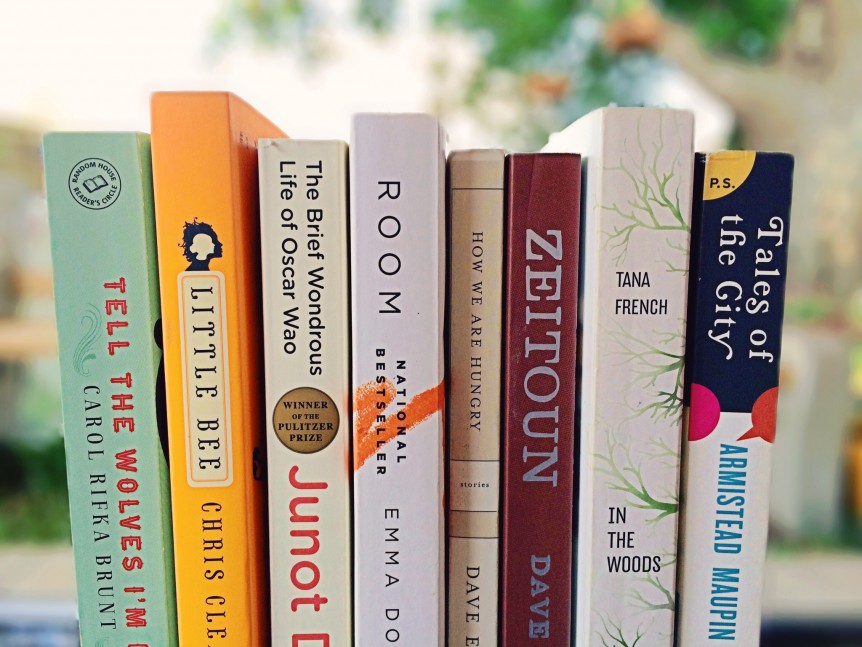Introductory
- Appeal: What drew you to the book in the first place? How was the book marketed? Was that a factor in your reading it?
- Interest: Did it sustain your interest? If you did not reach the end, why did you give up? Did it live up to the hype or your own first impressions and expectations?
- Impact: What was the book’s emotional impact? How was this achieved? Did you feel that your emotions were manipulated or did you feel authentic empathy with human experience.
- Popularity: If the book is a bestseller, what do you think explains its appeal? Does its popularity reveal anything about the spirit of the age and popular culture?
Setting
- Period: When is the book set? If in the past, does the author appear to aim for historical authenticity or for a contemporary re-imagining? If in the present, is the created universe one that you recognise? If in the future, what are the similarities and differences from the present? Whenever it is set, has the book informed or challenged how you see your own present?
- Place: Where is the book set? Is this a book that broadens your cultural horizons or helps you to understand experiences of those very different from you?
- Scale: What scale does the book have? Is it primarily focussed on the lives of a few characters living in their own ‘world’? Did this seem remote or sealed off from the ‘real world’? Or does it place individual lives against the backdrop of national or international events? Did this hinder or help plot and character development?
Plot and characters
- Narration: Does the protagonist or an associate of the protagonist narrate? Or does the author write with detached objectivity, able to read minds and interpret motives? How did this affect your perceptions of what is going on? Is this narrator a reliable witness of events?
- Driver: Would you say that the novel is primarily character-driven or plot-driven? Or is there an effective combination of the two?
- Characters: Who are the primary characters? Where do your sympathies naturally lie? Are their motivations, flaws and qualities credible, or merely means to drive the plot?
- Development: Do the characters undergo any significant change or development? Did any of their actions or words provoke reflection or further revelation about them as people?
- Conflict: What causes any conflicts and threats to the characters? Are these external (for example, the actions of others) or internal (for example, a psychological flaw or memory)? How are these overcome? Through individual or corporate action, or as a result of psychological development?
- Opposition: If there are individuals who function as adversaries (or antagonists) in the plot, what motivates them? Is the reader encouraged to sympathise at all? If they are villains, are they credible or cardboard-cutouts? If evil is a reality, how does it get portrayed?
- Plot: Does the plot make sense or are there gaps? What are the key turning points? Is it structured in linear form, or more complex (for example, multiple or parallel narratives, or flashbacks)? Was this difficult to follow, or did it work as an effective device to sustain interest? Was it credible? Did that matter?
- Conclusion: Did the conclusion satisfy you (whether in terms of plot, character development and credibility)? Were there conflict resolutions? Was it climactic or anticlimactic, and did you sense this was deliberate? Was this escapism (‘they lived happily ever after’) or a gritty, unresolved realism?
Purpose and worldview
- Morality: Do the characters live within any moral constraints or boundaries? Does the book give any indications of the basis for this morality? Are the boundaries portrayed in a negative and destructive light, or are they seen as positive and healthy?
- Consequences: Are there consequences for characters who break these moral boundaries? Is this a universe in which justice is done and seen to be done? Or is there a bleaker outlook?
- Resonances: Are there any resonances with a christian worldview (for example, human nature being both dignified and fallen, the possibility of redemption, the possibility of grace and generosity)? If so, how do these get developed? Do you think this was done deliberately?
- Agendas: Are there clues to the author’s agenda in writing this book? Are there any worldviews which the book deliberately seeks to advocate, or to undermine and call into question? Is there a ‘moral of the story’? If not, why not?
- Christianity: Were Christianity or Christians portrayed in the book? Were these portrayals fair, credible, realistic? Are there aspects of this portrayal that christians should learn from or take heed of?
Download: 20 Questions to Ask About a Novel
Photo credit: © Brittany Stevens. Used under a Creative Commons (CC-BY-2.0) licence.
Share this Post

